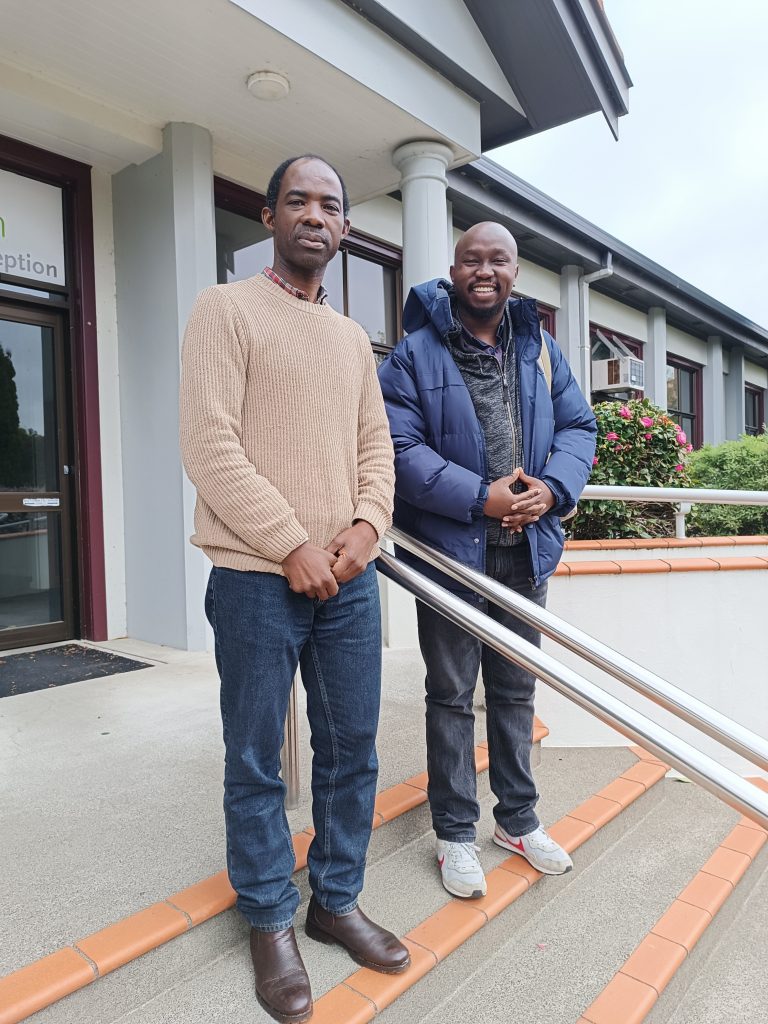Paul Mwangi, PhD student from Kenya, is pioneering research in the field of livestock greenhouse gas emissions
Paul Mwangi, PhD student from Kenya, is pioneering research in the field of livestock greenhouse gas emissions. With a solid foundation in veterinary medicine and animal nutrition, Paul is investigating how animal health, specifically gastrointestinal worms, influences enteric methane emissions from sheep—a critical issue for East Africa’s agricultural systems.
Currently, Paul is on a CLIFF-GRADS scholarship, a prestigious program that supports early-career PhD students from developing countries in conducting hands-on research aimed at addressing climate change. During his research stay at Massey University in New Zealand, Paul will collaborate with Dr. Neha Jha on a cutting-edge project to explore how pasture soils can reduce nitrous oxide emissions. This work has the potential to revolutionize livestock farming practices, making them more environmentally sustainable.
The CLIFF-GRADS program, a joint initiative between the Global Research Alliance on Agricultural Greenhouse Gases (GRA) and CGIAR’s Climate Change, Agriculture, and Food Security (CCAFS) program, plays a vital role in equipping young scientists like Paul to conduct innovative research for climate-resilient food systems.
Reflecting on his meeting with Paul, Ackim Mwape, GRA Africa Program Lead, remarked, “Paul’s work exemplifies the power of global collaboration in tackling agricultural sustainability challenges. As his research progresses, I look forward to seeing how his findings contribute to both the scientific community and practical solutions for reducing greenhouse gas emissions in agriculture.”
It’s exciting to witness Paul’s journey unfold, and we are eager to see how his research will shape future efforts in mitigating the climate impacts of agriculture.

